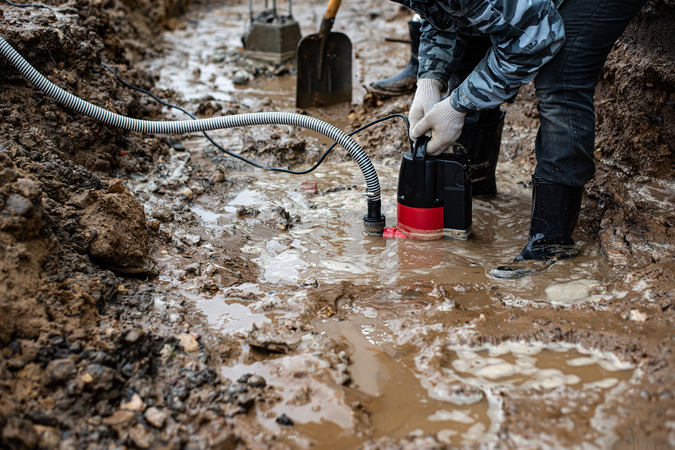In Memory of A. Myrick Freeman III
A. Myrick Freeman III, a former RFF senior fellow who helped pioneer the field of environmental economics, will be remembered as a hard-working, thoughtful person who was deeply engaged in his community, his teaching, and his scholarship.
Rick Freeman was a great colleague and citizen. And he was a true giant in the field in which RFF and researchers around the world now do their work.
— Paul Portney, former RFF President
A. Myrick Freeman, III, known as Rick to his friends and family, passed away on February 7, 2022, of natural causes. Freeman, who first joined Resources for the Future (RFF) in 1969 and later became a senior fellow, will be remembered for his commitment to his community and momentous presence in the field of environmental economics. He will be deeply missed.
Freeman was a prolific scholar who wrote extensively on topics related to environment and resource policy, particularly applied welfare economics, risk management, and benefit-cost analysis. Alongside dozens of papers and journal articles, Freeman published eight books, including several through RFF Press: his book The Measurement of Environmental and Resource Values: Theory and Methods won the 2002 “Publication of Enduring Quality Award’ from the Association of Environmental and Resource Economists.
Freeman was also an active member in environmental policy circles at every level. He made significant contributions to the study of air and water pollution and served on committees at the National Academy of Sciences and the Environmental Protection Agency. Notably, he taught at Bowdoin College as the William D. Shipman Professor of Economics, a position he retired from in 2000 after teaching for 35 years.
He will be remembered as a hard-working, thoughtful person who was deeply engaged in his community, his teaching, and his scholarship. His contributions to the field of environmental economics will continue to inform our future, and the legacy he leaves behind through his family, his students, and his work will continue to improve the world around us.
During 1979 and most of 1980, I was on leave from RFF serving as chief economist at the White House Council on Environmental Quality (CEQ). From the early 1970s, CEQ had been including in its Annual Report to the President estimates of the economic costs associated with complying with the myriad new regulations being written under the Clean Air Act and Clean Water Act.
This sole focus on the costs of environmental regulation rightly troubled my higher-ups. With some persuading, they let me commission Rick Freeman to do a study of the annual dollar benefits of the regulations under both acts. Based on what relatively little was known at the time, and after carefully pointing out gaps in the knowledge, Rick concluded that the dollar benefits from cleaner air (improved human health, reduced damage to exposed crops and materials, etc.) appeared to exceed the annual costs associated with those regulations. He also concluded—again, based on what little was known then—that the annual benefits associated with cleaner water appeared to fall short of the costs of attaining it. I caught holy hell from my bosses for that latter conclusion!
Rick’s findings, included in the 1980 CEQ Annual Report, were the first time that anyone had attempted to quantify in dollar terms all of the economic effects—both positive and negative—associated with emerging environmental regulations. His findings spurred significantly and contributed heavily to all subsequent efforts and led directly to Rick’s two monumental books for RFF on the theory of benefit estimation.
Rick Freeman was a great colleague and citizen. And he was a true giant in the fields in which RFF and researchers around the world now do their work.
—Paul Portney, former RFF President
Rick was that rare combination of intellect, scholarship, and curiosity rolled up in a genuinely wonderful person. He made for an incredible colleague who would cheerfully share his deep knowledge of economics with junior researchers struggling to grasp new and abstract concepts at the heart of the newly emerging field of environmental economics.
Rick possessed the ability to see seemingly disparate elements of the new field from a holistic perspective and then weave them together in a unified theoretic structure. Rick used that talent to write a chapter on the theory of non-use values for a book V. Kerry Smith and I were editing in 1988. A year later, in March of 1989, oil from the Exxon Valdez would damage the pristine Prince William Sound. Lost non-use values would play a prominent role in Alaska’s assessment of the damages to the sound. Rick then penned an article for Resources called “Assessing the Damages from the Valdez Oil Spill,” which brought a very accessible treatment of his thoughts and concepts to a wide audience of readers.
While we will all miss his intellect and scholarship, I will miss this genuinely wonderful person.
—Ray Kopp, RFF Senior Fellow and former Vice President for Research and Policy Engagement
Rick was an inspiration to me and, to a large degree, it was through him I grew an interest in the valuation of health and environmental impacts through survey research. His book provided the intellectual foundation for much of my work in this area. His dry humor and twinkling eyes when he said something funny or provocative will always stay with me. He was a quiet powerhouse of a man.
—Alan Krupnick, RFF Senior Fellow
It is difficult to overstate the contributions that Rick Freeman made to the valuation of environmental benefits and to benefit-cost analyses of environmental programs. The Measurement of Environmental and Resource Values; Theory and Methods, which first appeared in 1979, provided an elegant theoretical treatment of benefits as well as the empirical methods available for measuring them. I think it is fair to say that hundreds of environmental economists learned the principles of non-market valuation from this book. Rick was also a pioneer in applying these principles to benefit-cost analyses of environmental programs, producing benefit-cost analyses of the Clean Air and Clean Water Acts in 1982. Rick blazed a path that many others have followed—and we owe him a debt of gratitude for having done this.
—Maureen Cropper, RFF Senior Fellow
For more about Rick Freeman's life and legacy, please read this statement from Bowdoin's Office of the President.
Resources for the Future (RFF) is an independent, nonprofit research institution in Washington, DC. Its mission is to improve environmental, energy, and natural resource decisions through impartial economic research and policy engagement. RFF is committed to being the most widely trusted source of research insights and policy solutions leading to a healthy environment and a thriving economy.
Unless otherwise stated, the views expressed here are those of the individual authors and may differ from those of other RFF experts, its officers, or its directors. RFF does not take positions on specific legislative proposals.
For more information, please see our media resources page or contact Media Relations and Communications Manager Annie Tastet.



